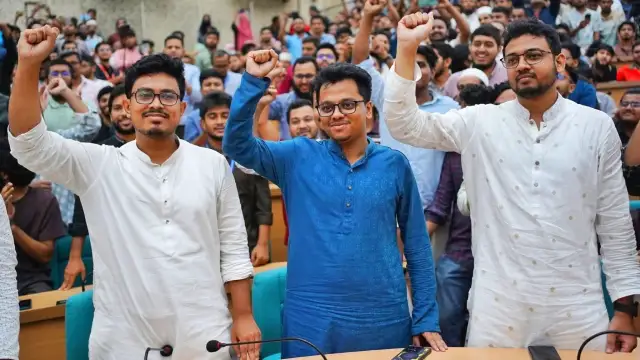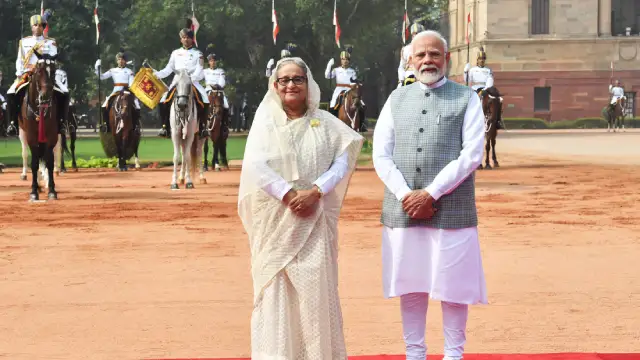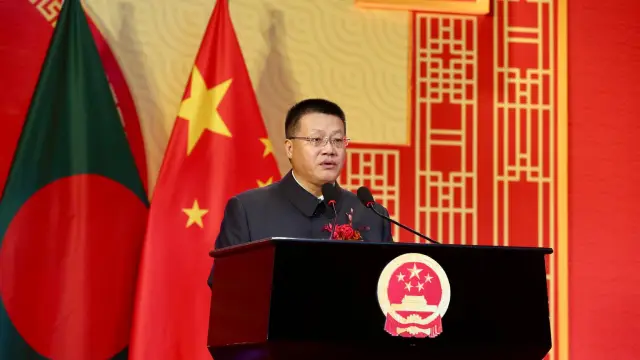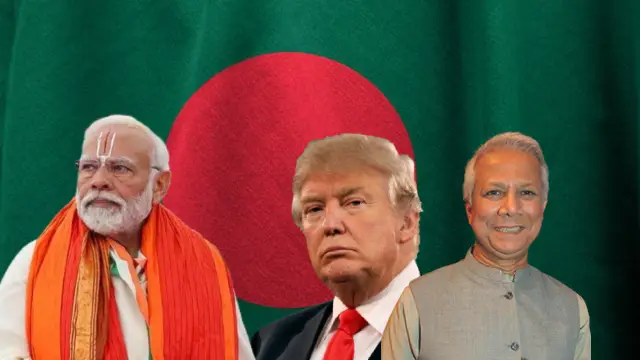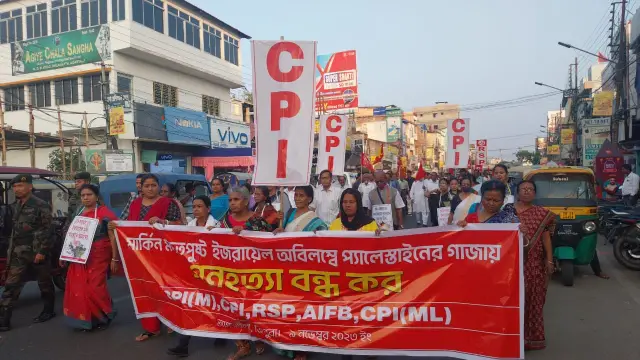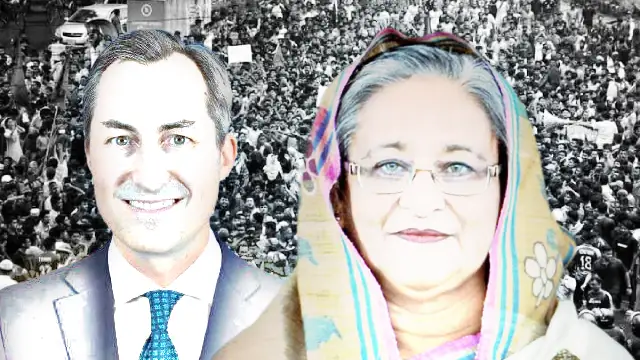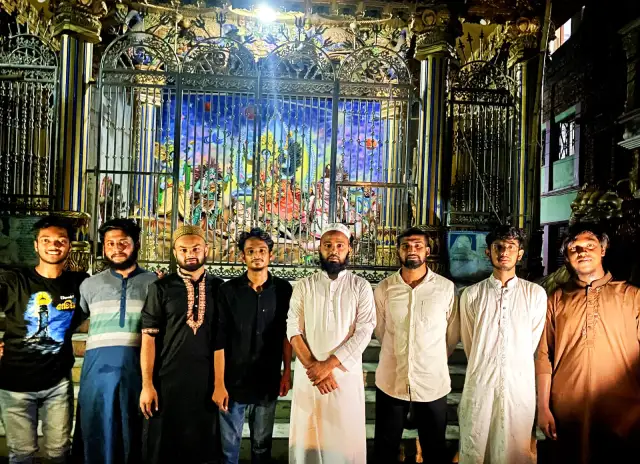After a long night of anticipation of the results of the Dhaka University Central Student Union (DUCSU) Elections, Dhaka woke up to the news of the polls being swept by the candidates under the banner of Oikkoboddho Sikkharthi Jote (United Student Alliance), backed by Bangladesh Islami Chhatra Shibir, the student wing of far-right Islamist Jamaat-e-Islami.
The panel won 23 of the 28 posts, while the rest of the posts were won by four independent candidates and one candidate from Pratirodh Paridhad of the Left Alliance, leaving the front-runner contenders of Jatiotabadi Chhatra Dal (JCD), the student organisation of Bangladesh Nationalist Party (BNP), and Students Against Discrimination in a lurch.
Several student leaders from contending panels, like Pro-Bangladesh Students’ Unity, backed by JCD, alleged rigging of votes, irregularities and even suggested that the biased electoral outcome is a result of the college administration’s bias in favour of the Jamaat-Shibir.
Marches, demonstrations and written complaints by student activists alleging “vote theft” have wrapped the campus in the post-election whirl.
For the first time in the history of DUCSU, Jamaat-e-Islami’s student wing, the Chhatra Shibir, has taken the centre stage. As an obvious outcome of the same, the results have come in as a shock to panels backed by mainstream opposition parties such as the BNP and the Left Alliance.
The unexpected result of the DUCSU elections, foretelling the outcomes of the General Elections to be held in February 2026, is all the more interesting as this marks the first time since 1971 that Jamaat-Shibir has managed to sweep a poll on its own, without the backing of any other panels.
This shows a very interesting trend in Bangladesh’s politics, after the 2024 monsoon uprisings that toppled the Sheikh Hasina-led Awami League‘s government.
The larger question now looms: how did the Chhatra Shibir, a student body that has had a feeble presence on campus owing to a ban from campus activities since the 1990s, manage to claim such an overwhelming majority? Is the victory a popular one or does it reflect the deeper allegiance of institutions, resurging majoritarian sentiments in the post-Hasina order?
Doom and defeat: Jamaat-e-Islami in retrospect
Looking back to put together the pieces that could foretell Chhtra Shibir’s success at DUCSU elections, we find a compelling account of its organisational working, overtly and covertly.
In the 1990s, the Dhaka University Poribesh Porishad banned Chhatra Shibir, alongside the Jatiya Chhatra Samaj, the student wing of the Jatiya Party, owing to their fundamentalist positions and anti-liberation stance.
During the 15 years of the Awami League’s rule, Shibir faced a complete curtailment of its activities, remaining inactive for decades until the fall of the Awami League empire.
The Jamat-Shibir is alleged to have carefully planned its resurrection, with stealthy infiltration within the Awami League student front, Chhatra League, and its cultural/ social organisations.
However, after the ban on Chhatra League, the Jamaat-Shibir could openly organise under its banner, denying its past and rebranding itself as one of the leading forces of the anti-fascist movement.
In the months before the DUCSU elections, the Democratic Students’ Alliance, a coalition of various left-wing student organisations, released press statements, demanding that the administration cancel the nominations of the Chhatra Shibir.
The statement also alleged that the administration, in defiance of the ban, has let Shibir organise on the campus repeatedly; an allegation that continues to sustain amidst the sweeping victory of the Chhatra Shibir at polls.
Dhaka University’s Proctor Professor Saifuddin Ahmed has come out to assert that no records of the existence of the “Poribesh Porishad” have been found, while also opining that Jamaat-Shibir has the right to participate in politics on the campus.
An attempt at rewriting history?
Jamaat-e-Islami and its students’ wing are known for their anti-liberation war stance, including the denial of the Pakistani war atrocities.
The Islamist force is accused of killing Bengali students and intelligentsia, who opposed Pakistani occupation of the country.
Time and again, Jamaat-e-Islami has staged and championed the portraits of Jamaat leaders who have been convicted of war crimes during the 1971 liberation war.
The Jamaat-Shibir has also had a controversial role in the anti-autocracy movement in the 1990s, during which the Chhtra Shibir was also accused of orchestrating clashes and armed activities within various campuses across Bangladesh.
The major win at DUCSU elections by the Jamaat-e-Islami could be a cue for them to accelerate their attempt at rewriting history, using the social legitimacy to dominate public opinion on the perception of war criminals through latent denialism of Pakistan’s war atrocities.
Jamaat-e-Islami’s win at the DUCSU elections is certain to have ripple effects in the general elections to be held next year.
What is left to be seen is whether this shift will push the Overton window so far to the right that it undermines the revolutionary gains of the July uprising, jeopardising the vision for a just and equal Bangladesh.
Join our channels on Telegram and WhatsApp to receive geopolitical updates, videos and more.

